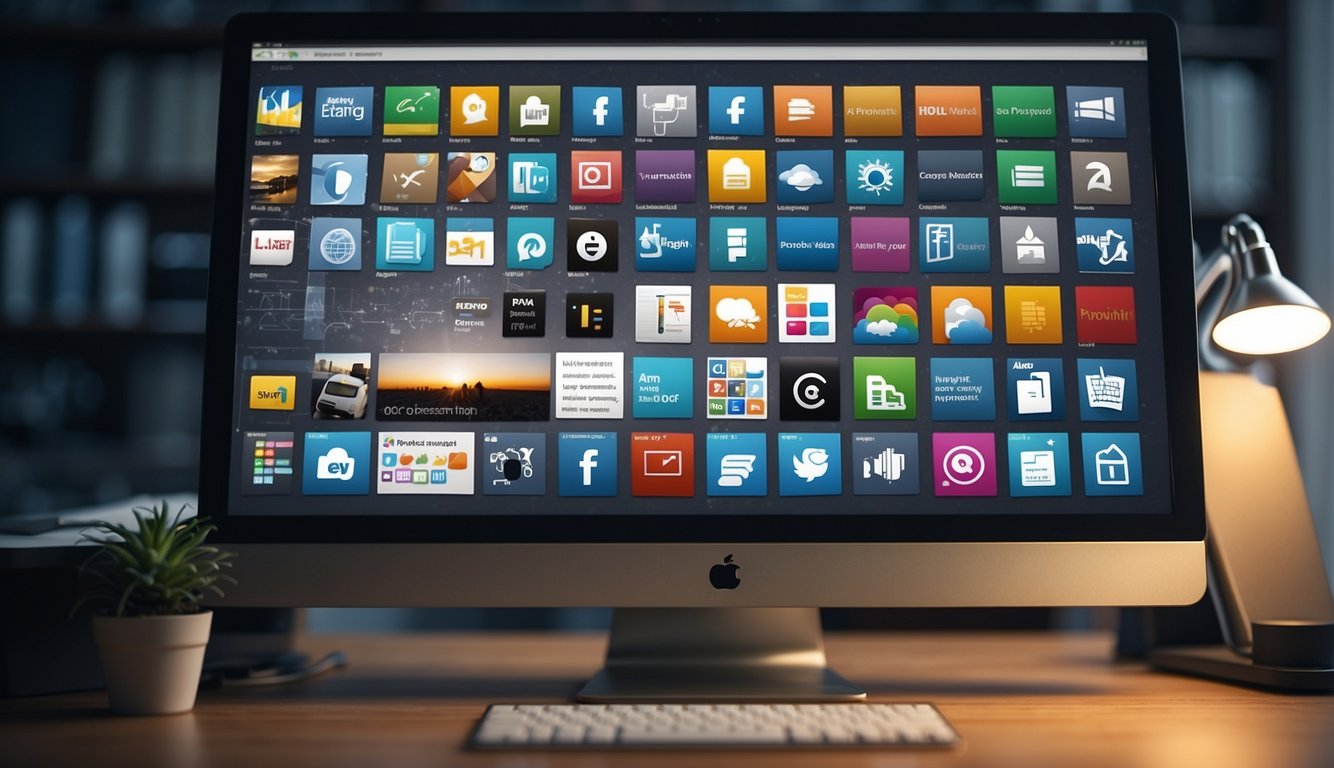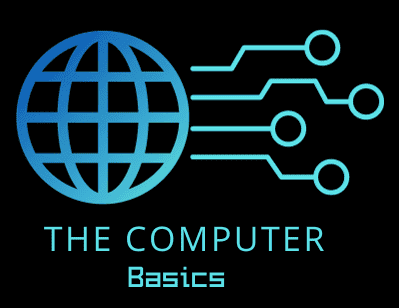Setting up a new PC can be an adventure, especially when deciding what software to install first.
Consider a solid office suite – something like LibreOffice – which is free and offers a comprehensive range of applications for creating documents, spreadsheets, and presentations, comparable to Microsoft Office.
A reliable image editing program is also a good idea; Paint.NET is user-friendly and perfect if you’re into basic image manipulation or just need to blur out sensitive information from screenshots.
Moving on to file management, a robust file archiving tool like 7Zip is essential for unpacking downloaded files and compressing your own data for storage or sharing.

In the world of perpetual multitasking, software like ClipClip – a clipboard manager – becomes a secret weapon. Copy and paste will never be the same once you can manage multiple snippets of text, images, and files effortlessly.
And let’s not forget audio – whether you’re a podcaster or just need to tweak some sound files, Audacity is a powerful, open-source option for audio recording and editing.
Operating Systems and Support
When diving into the digital world, your experience is largely shaped by the operating system (OS) you choose and the support that comes with it.
Understanding Operating Systems
An operating system (OS) is like the backbone of your computer, essential for managing all your software and hardware. If you’re looking for widespread compatibility and user-friendly updates, you might lean towards Windows 10 or 11.
On the flip side, if you’re all about aesthetics and a seamless user experience across devices, then macOS could be your go-to.
And let’s not forget about Linux, the champion of open-source enthusiasts. It offers powerful customization but can be a bit more complex to navigate for newbies.
- Windows 10/11: Familiar and widespread, offering compatibility with a myriad of software options.
- macOS: Known for its sleek interface and robust ecosystem, particularly if you use other Apple products.
- Linux: Highly customizable and preferred by developers, but can require a steeper learning curve.
Software Support Basics
Now, getting the hang of your OS is one thing, but what about when things go sideways? That’s where support comes in.
Your OS might come with built-in help guides, or you may need to visit online forums or dedicated support pages.
If you use Windows, you’ll find a wealth of support from both Microsoft and community forums.
Apple’s macOS users have access to the Genius Bar and comprehensive online resources.
For Linux, community forums and distributions’ own documentation are invaluable, as personalized support might not be as readily available.
Web Browsers and Online Safety
Your choice of web browser can significantly impact your online safety and privacy. So, it’s essential to pick one that aligns with your security needs and to know how to keep your information secure while browsing.
Choosing the Right Web Browser
When deciding on a web browser, consider the security features each one offers.
Google Chrome is widely used for its fast performance and extensive library of extensions, but it’s also known for consuming quite a bit of memory.
Mozilla Firefox champions privacy with strong tracking protection.
Microsoft Edge has made great strides in both performance and security, especially with the new Browser essentials feature.
Meanwhile, Opera is less mainstream but offers an integrated VPN for increased privacy.
Here’s a quick rundown of popular browsers:
- Google Chrome: Best for extension library and performance.
- Mozilla Firefox: Ideal for privacy features and customization.
- Microsoft Edge: Good for integration with Windows and performance tools.
- Opera: Offers free VPN and innovative features.
Ensuring Online Security
Your online security is only as good as your practices.
Ensure to keep your web browser updated to the latest version to protect against vulnerabilities.
Using a VPN can mask your IP address, providing an extra layer of privacy.
Be cautious with browser extensions; even though they can add functionality, they can also introduce security risks if not properly vetted.
It’s not just about the browser you choose; it’s about how you use it.
Office and Productivity

When it comes to staying on top of your work, having the right tools is crucial. Solid office suites and communication platforms are the bedrock of modern productivity — whether you’re drafting documents, managing spreadsheets, or keeping in touch with your team.
Office Suites for Every User
If you’re looking for the industry standard, Microsoft Office is the heavyweight champion. With essential tools like Microsoft Word, Excel, and PowerPoint, it’s got pretty much everything you need.
But hey, not everyone wants to shell out cash, right? If you’re budget-conscious, give LibreOffice a whirl. It’s free, compatible with most file formats you’ll work with, and it’s constantly updated by a passionate community.
For those keen on a nimble alternative, FreeOffice is a solid option that balances functionality and lightness.
If you’re often on the go and love the cloud, you won’t go wrong with Google Workspace. It lets you create, edit, and collaborate online with ease. Plus, being browser-based means it’s pretty much platform agnostic—use it on a PC, a Mac, or even your tablet.
Email and Communication
When your day’s filled with emailing clients or chatting with your team, you want to know you’ve got reliable tools by your side.
Microsoft’s Outlook has long been a go-to for heaps of users, integrating email with calendars and tasks.
But don’t overlook the simplicity and power of Skype for keeping in touch, whether it’s instant messaging or face-to-face video calls.
Multimedia Handling

When it comes to enjoying and managing your multimedia library, having the right tools can make all the difference. Whether you’re sorting through weekend snapshots or getting your music playlist just right for your morning run, the following software picks are essentials in your digital toolkit.
Managing Photos and Videos
Adobe Photoshop is like your creativity unleashed. This isn’t just an image editor; it’s the gold standard for professional photo manipulation and design. Tailor your pictures with advanced features, or just stick to the basics—you’ve got the power.
When it’s time to handle movies or your video collection, don’t sweat. Programs like Ashampoo Movie Studio Pro let you churn out edits that would make a YouTuber proud, ensuring your content is cut, polished, and ready for the spotlight.
For a one-stop-shop that handles a variety of formats, VLC Media Player has your back. Not only can it play movies in a multitude of formats, but it’s also free and open-source, which means you won’t have to dig into your pockets to use it.
Music and Media Players
For music aficionados, Spotify offers a vast library at your fingertips. Whether you have specific tastes or love to explore, this streaming service has become synonymous with discovering new tunes and reviving old favorites in your music adventure.
If you are into organizing and playing local files, Windows Media Player might be a familiar face. It’s been a solid choice for Windows users to manage and listen to their music collections for years.
Want to ditch the default and try something versatile? VLC Media Player isn’t only for videos, it’s also a robust media player for all your songs. Playlists, podcasts, or live streams—VLC can groove to your beat without missing a step.
Utilities and Tools

When setting up your space, it’s important to have the right utilities and tools to keep your system running smoothly and your files organized. From cleaning up your disk space to ensuring your files are well-managed, the following tools are must-haves.
Keeping Your System Clean
To avoid a slow and cluttered PC, consider using CCleaner. This handy utility cleans out temporary files, clears your browser cookies, and even helps with uninstalling programs you no longer need. It’s a great way to free up disk space and keep your machine running fast.
Also, don’t forget about antivirus software; tools like McAfee Antivirus can protect your system from malicious attacks.
- Cleaner Software: CCleaner
- Antivirus Software: McAfee Antivirus
File Management Essentials
For file management, cloud storage services like Google Drive and OneDrive are essential. They allow you to store your files online securely, share with others, and access them from anywhere.
Plus, they often include a PDF reader and options to back up your files automatically.
Always ensure you’ve got a backup system in place. It’s a lifesaver if your local files are ever compromised.
- Cloud Storage:
- Google Drive
- OneDrive
- Backup: Use cloud services’ built-in backup features
- File Management: Organize your files with cloud storage folders and features
With the abundance of programs out there, it can be tricky to figure out which ones are truly essential for your computing experience. Research thoroughly before purchasing.

